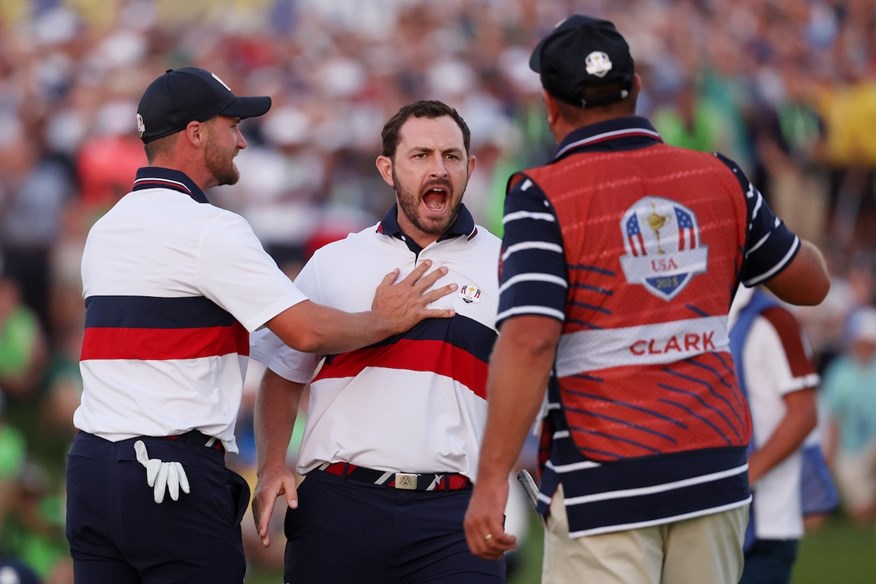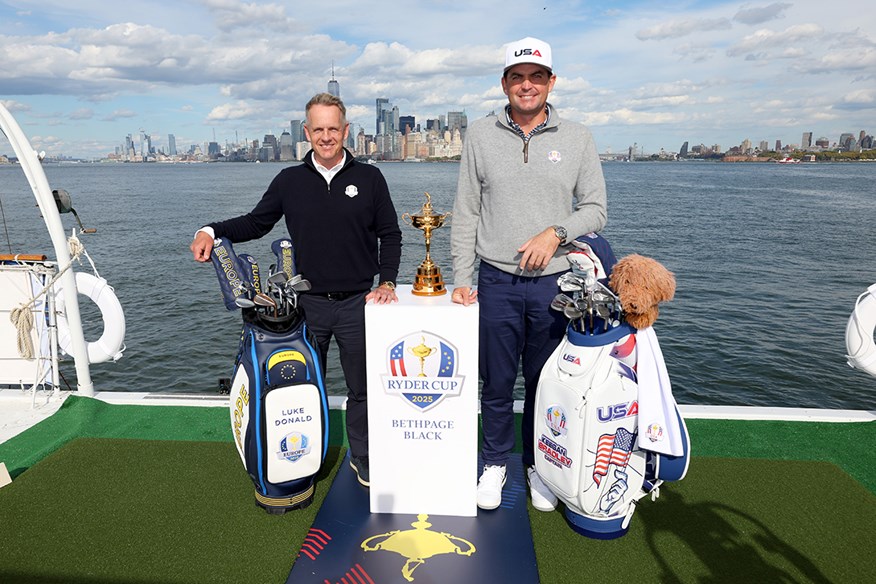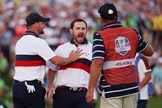Do golfers get paid for playing in the Ryder Cup?
Last updated:

It was the biggest talking point of the 2023 matches in Rome, but do the players get paid to play in the Ryder Cup?
The Ryder Cup is one of the most lucrative events in sports, pulling in millions through television rights and sponsorship.
According to an independent report by the Hallam University in Sheffield, England, the 2023 Ryder Cup generated a record-breaking €262 million – roughly $227 million – for the local economy, while the tournament also brings in close to six figures in revenue alone.
Do golfers get paid to play in the Ryder Cup?
That very question was headline news during the 44th edition of the biennial matches in Italy when reports emerged that Patrick Cantlay was leading a revolt in the US team room over a fee for the Ryder Cup. He later denied the claims, saying they “did not have a shred of truth”, but it sparked some unsavory scenes out on the course – including an incident involving Cantlay’s caddie, Joe LaCava, that eventually led to Rory McIlroy squaring up to the bagman in the Marco Simone car park afterwards.
Week-to-week, golfers tee it up in a PGA or DP World Tour tournament with a substantial prize fund and winner’s check on the line. But when it comes to the ultimate team event in golf, things are very different. It is felt that playing in the biennial event making history, representing your nation or continent, and lifting the trophy should be more than enough, without getting paid.
When the Ryder Cup began back in 1927, players were originally ‘compensated’ for playing in the event, with British players receiving a travel, clothing and equipment allowance.
That remained in place for many years before Tony Jacklin introduced a new tradition when first captaining Europe in 1983, by which point the competition had been expanded to Continental Europe. Since then, the players haven’t been given money and instead receive gifts from their captains which are paid out of the Ryder Cup pool.
Things are different for Team USA, though.
At the infamous “Battle of Brookline” match in 1999. USA big-hitters David Duval, Tiger Woods, Mark O’Meara, and Phil Mickelson all questioned where the reported $23 million net profit from the event went, with some reportedly frustrated they didn’t get paid despite countless “corporate” requirements throughout the week.

Speaking at the time, Woods said: “I would like to see us receive whatever the amount is – 200, 300, 400, 500,000 dollars, whatever it is – and I think we should be able to keep the money and do whatever we see fit.
“Personally, I would donate all of it to charity. But I think it’s up to the other person’s discretion what they would do with it.
“With all the money that’s being made, I think that we should have a say in where it goes.”
While there was talk that players could boycott the event – claims that were later played down – an agreement was reached following discussions. While the rules meant that the players weren’t entitled to any of the cash, a deal was made to allow the US team to have a say on the donations.
Each player would get $200,000. The money was evenly split, with half going to the Boys & Girls Club of America, the Drive, Chip, and Putt Championship, and the PGA Junior League Golf, with the other half going to the player’s chosen charities.
“Everybody is on the same page,” Tom Lehman said. “There will not be compensation to players under any circumstance. The PGA of America heard what the players had to say about having a voice. The players want what’s close to their hearts to be heard as well.
“The idea of a boycott was, is, and always will be ridiculous.”
That all changed in Rome with ‘Capgate’, though. From the 2025 Ryder Cup onwards, the PGA of America will offer each of Team USA a $500,000 package. This will include $300,000 designated for charities of the player’s choice, and a $200,000 stipend which each player can do as they wish.
Shortly after the announcement, three-time Ryder Cupper Xander Schauffele said: “I just see it as a whole lot of money going to charity and we’re going to take a lot of crap. Learning from the PGA Tour, we’re going to give back to the community however we can help.”

Do the Ryder Cup captains get paid?
They dedicate two years to the Ryder Cup captaincy but, in short, the answer is no. At least, not directly.
They receive travel expenses for promotional events and any responsibilities before the tournament but there is no ‘wage’ or win bonus.
However, their role receives worldwide exposure which, in most cases, has created lucrative opportunities after the Ryder Cup, from sponsorship deals and paid appearances to books and television roles.
Is the Ryder Cup revenue split between the tours?
Yes, but not evenly.
When the event is played in the United States, the PGA of America owns the rights to the events and takes the majority of the profits – just under 84%, with just over 16% going to the DP World Tour.
When the Ryder Cup is played in Europe, the DP World Tour claims 60% of the profits.
